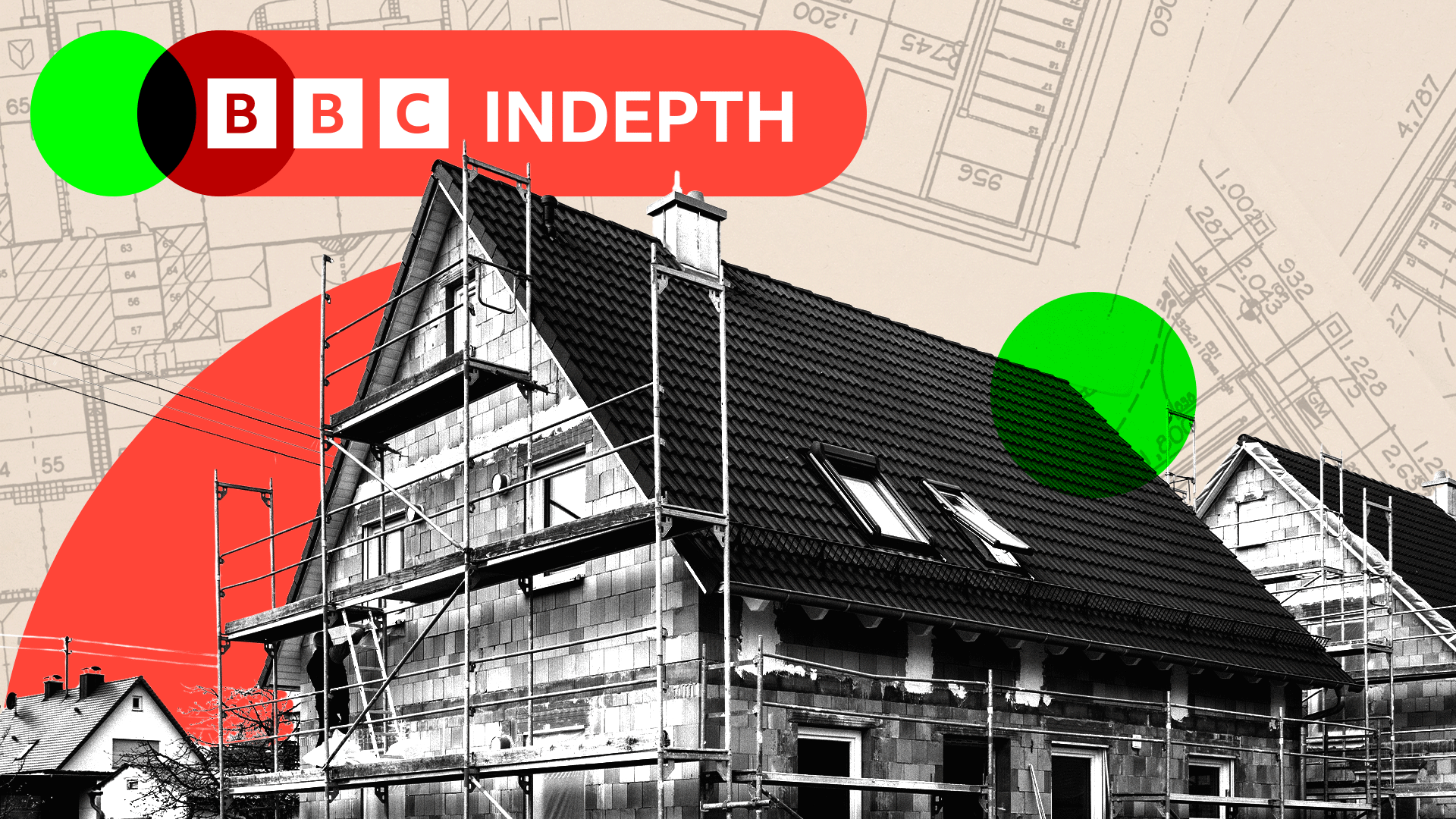No excuses not to build 1.5m new homes, Rayner says
Rayner 'determined' to meet Labour's 1.5m new homes target
- Published
Deputy Prime Minister Angela Rayner has said there are "no excuses" to not build the 1.5 million new homes Labour promised in its election manifesto.
The government has said it will meet the house-building target in England by 2029, before the next general election.
BBC analysis shows the number of new homes in England continued to fall during the first six months Labour was in power.
Speaking to the BBC's Sunday with Laura Kuenssberg, Rayner said Labour knew hitting the target "was going to be really difficult", given housebuilding trends before it entered government - but said she was determined to meet it.
The housing, communities and local government secretary said that within a month of taking office, she was asked if she wanted to review Labour's housing target.
"I wasn't going to give up on the target," she said.
She said she was personally "determined to meet that 1.5 million target" and said policies such as reforming the planning system would "take time" to have an impact.
She added: "There are no excuses to not build those homes that people desperately need.
"And we mean business on this, because far too many people are not getting these homes."
Gillian Keegan, a former Conservative MP and education secretary, told the programme the pace of housebuilding was "too slow".
She said the Conservatives had also promised to build more than 1.5 million new homes in its 2024 election manifesto, adding that the party had made "a lot of progress" when in government "but the reality is, it's still too slow".
"The highest number we got to was about 249,000 in one year," she said.
"Now obviously we had to navigate Brexit, Covid and a war in Europe at the time.
"But that shows you the size of the challenge."
Labour hopes building more homes will reduce house prices and make buying and renting homes more affordable, especially for younger people.
Its target means building an average of 300,000 new homes a year - a number not achieved since the 1970s.
In recent years, the number of new homes built annually has been considerably below that figure.
The housing industry has expressed doubts about Labour's housing target and whether it can be reached by 2029.
The construction industry has warned it is dealing with a chronic shortage of skilled workers.
There are also concerns about the availability of basic building materials, including bricks and timber.
And many housing experts are unsure whether private housebuilders are able or willing to deliver enough new homes each year.
Speeding up home-buying
It comes as Rayner's department set out plans to speed up the house-buying process and give more power to leaseholders.
The government said it plans to cut transaction times by bringing in digital identity services and date-sharing.
At the moment, it can take months for paperwork relating to the sale of a home to be exchanged and checked by mortgage companies and others involved in the process.
The government said under a fully digitalised home-buying and selling process, "the information key parties need – from mortgage companies to surveyors – will be within reach immediately, with the necessary identity checks carried out once".
The housing department said it was working with the property market and the Land Registry to agree rules on data-sharing and digital ID verification services.
There are also plans to empower leaseholders to take control of their buildings more easily, through right-to-manage.
Right-to-manage lets some leasehold home owners take over management of the building - even without the agreement of the landlord - and gives them control over how their service charges are spent.
The government said it would introduce changes to the Leasehold and Freehold Reform Act 2024 on Monday.
Housing and Planning Minister Matthew Pennycook said the reforms build on the government's plan to deliver "1.5 million safe and decent homes in this Parliament, and our ongoing efforts to protect leaseholders suffering from unfair and unreasonable practices".
Related topics
- Published30 January

- Published26 September 2024

